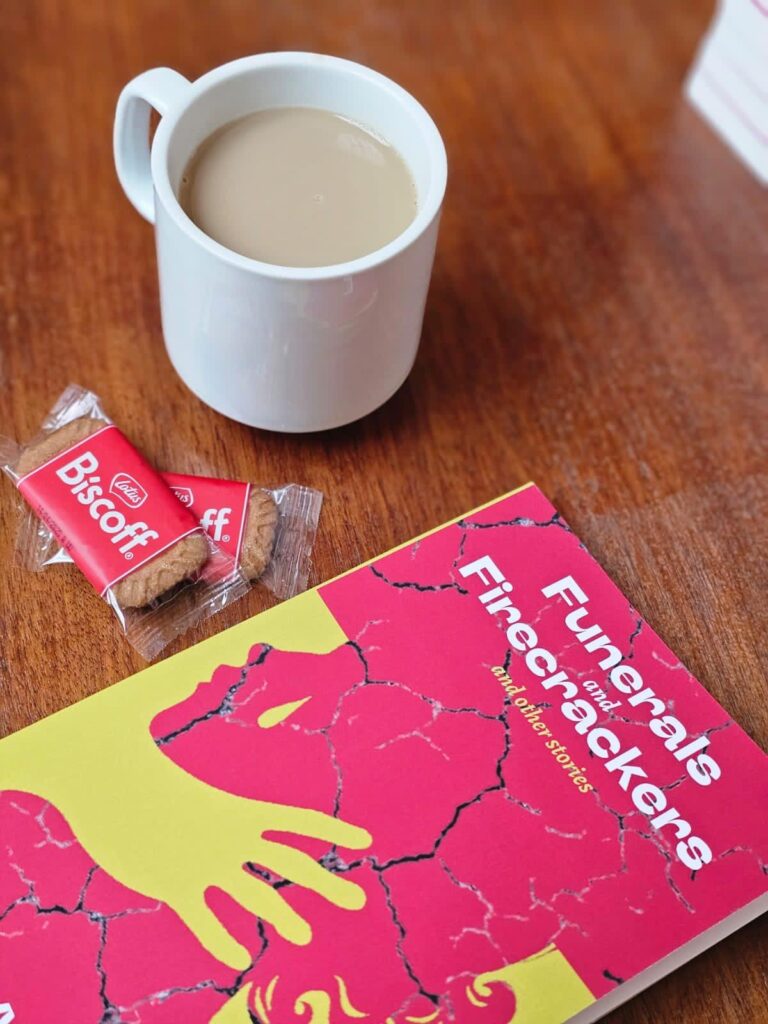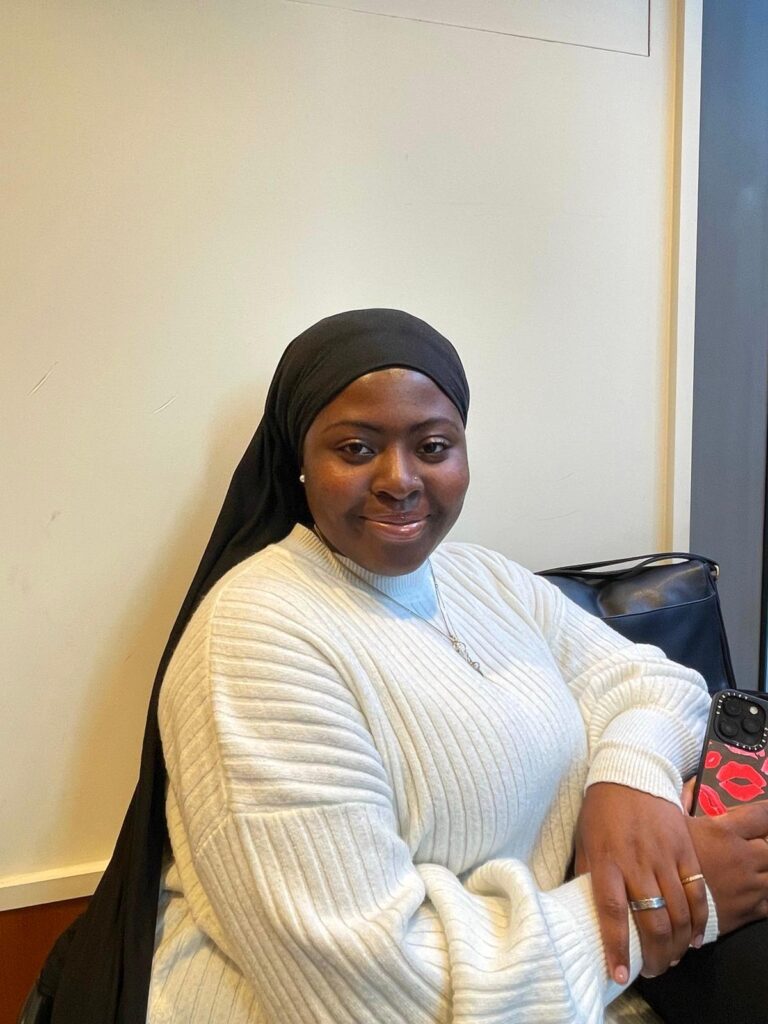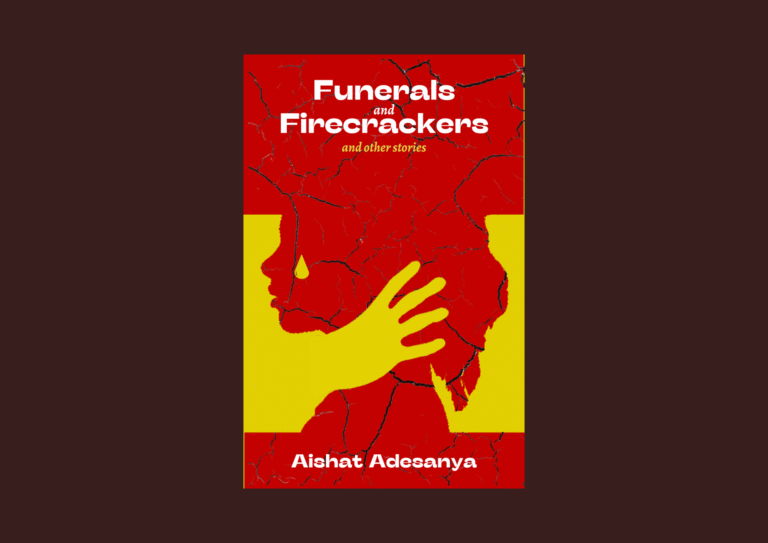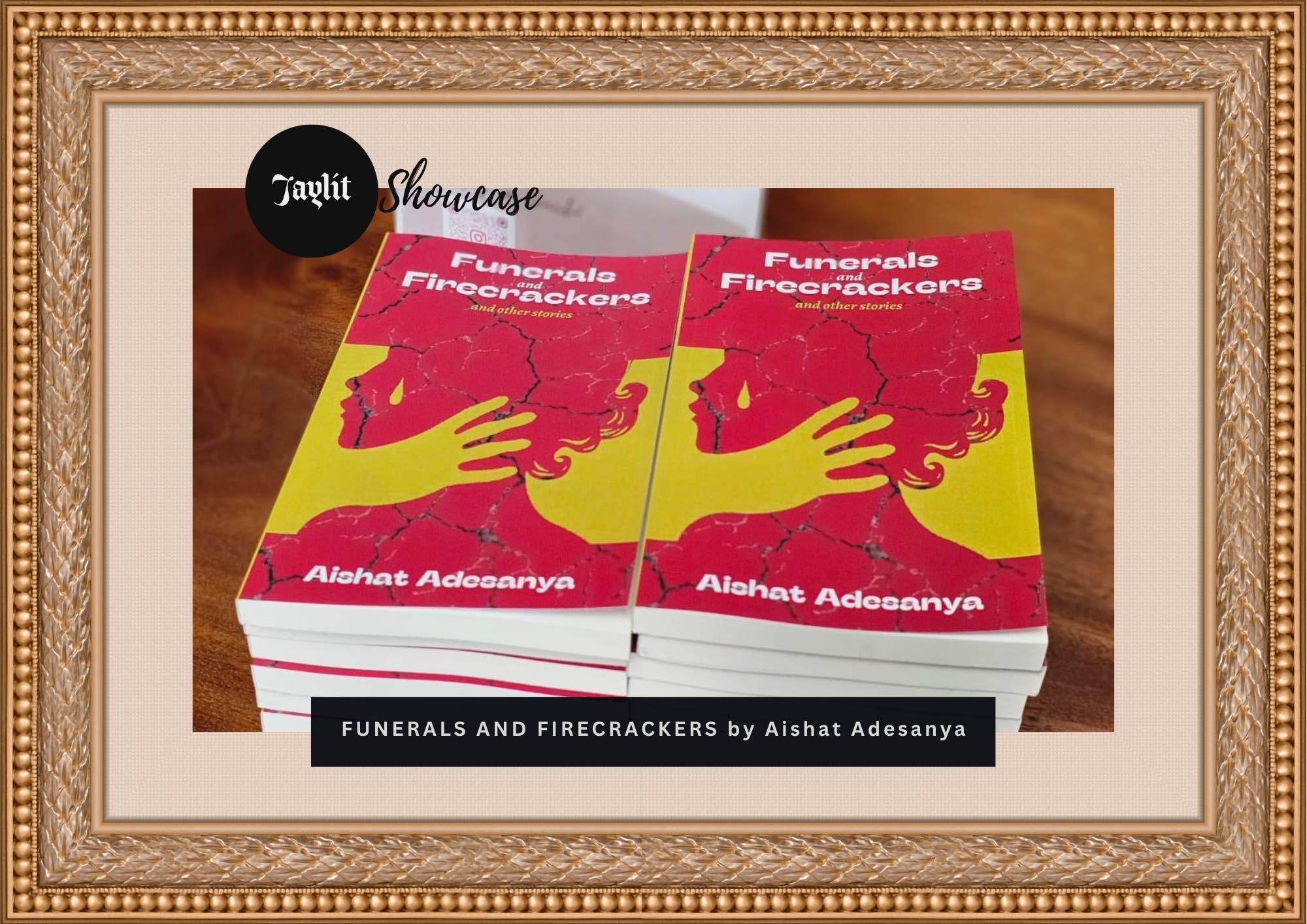The author discusses drawing from personal experience, navigating cultural transitions, and why not all stories of trauma end in healing.
Somewhere between mourning and celebration, between the stillness of funerals and the startling burst of firecrackers, lie the stories in Aisha Adesanya’s debut collection. Funerals and Firecrackers is a work born out of dissonance, between cultures, between personal grief and communal silence, between what we survive and what we carry forward.
Across the stories, Adesanya traces the emotional lives of characters struggling with trauma, displacement, and mental health challenges. Some find their way through. Others don’t. And that, perhaps, is what makes the collection so arresting: it does not romanticise healing or offer neat resolutions. Instead, it creates space for the messy, unspoken aftermath of trauma.
I sat down with Aisha and listened as she shared the inspiration behind her thought-provoking collection of stories. We discussed a lot of things, including how her personal experiences with trauma, her mental health state, and cultural transitions moving from Nigeria to the UK have all come together to help shape her writing.

Writing from a Place of Grief and Displacement
The stories in Funerals and Firecrackers reflect a personal reckoning with loss and identity. Adesanya’s own experience of losing her mother at a young age shaped her understanding of grief, not as a clean process of closure, but as something ongoing, difficult, and, at times, invisible.
The collection also captures the complexities of navigating life between cultures. Having moved from Nigeria to the UK, Adesanya understands the emotional toll of straddling two worlds. This duality is mirrored in her characters, many of whom must confront not only internal struggles but also the external pressures of adapting to new environments. In some stories, cultural displacement magnifies their distress, making even the smallest challenges feel overwhelming.
A Personal and Nonlinear Writing Process
Adesanya describes her writing process as long, nonlinear, and often dictated by emotional momentum. Drafts are sometimes left untouched for months before being revisited with a fresh perspective. Rather than following a structured routine, she leans into instinct, letting her feelings guide her revisions.
When facing creative blocks, she turns to film. Movies provide her with visual and emotional cues that reignite her imagination. One of the stories in her collection, for instance, was inspired by Miller’s Girl (2024), a film that helped her reimagine narrative tone and structure. Visual storytelling, it seems, plays a key role in how she thinks about fiction.
Her characters often emerge from emotion rather than plot. She builds them out of her own inner life—uncertainties, memories, and personal reflections—resulting in stories that feel deeply felt rather than purely imagined.

The Cultural Weight of Mental Health
Funerals and Firecrackers frequently returns to the subject of mental health, not just as an individual challenge but as a cultural taboo. Drawing on her own experiences and a past internship in a psychiatric department, Adesanya explores how mental illness is perceived differently in Nigeria and the UK.
Several of her stories examine what happens when characters encounter systems that neither understand nor are built to support them. This cross-cultural dissonance, combined with structural barriers like racism and xenophobia, deepens their isolation. Through quiet, observational prose, the collection highlights how easy it is for people to fall through the cracks when their pain is either misunderstood or ignored.
Funerals and Firecrackers frequently returns to the subject of mental health, not just as an individual challenge but as a cultural taboo. Drawing on her own experiences and a past internship in a psychiatric department, Adesanya explores how mental illness is perceived differently in Nigeria and the UK.
Several of her stories examine what happens when characters encounter systems that neither understand nor are built to support them. This cross-cultural dissonance, combined with structural barriers like racism and xenophobia, deepens their isolation. Through quiet, observational prose, the collection highlights how easy it is for people to fall through the cracks when their pain is either misunderstood or ignored.
A Title That Holds Tension
The title Funerals and Firecrackers captures the contrasting emotional registers that run through the collection. On one hand, the stories are grounded in grief, death, loss, and disconnection. On the other hand, they contain sudden, unexpected moments of chaos or clarity. The firecrackers, in this sense, serve as both a metaphor and an interruption: a reminder that life doesn’t wait for grief to be processed.
Even the book’s cover echoes this tension. Designed in collaboration with Books Yes, it visualises the dual themes of sorrow and surprise that pulse through the collection.

Looking Ahead
Although her debut leans into darker emotional terrain, Adesanya has hinted at an interest in exploring lighter themes. Romance, for instance, is a genre she’s open to experimenting with. This shift could offer a counterbalance to the intensity of her first collection, while still maintaining the emotional depth she brings to her storytelling.
For now, she continues drafting new work and sending out submissions, staying committed to developing her voice across genres.
It is my submission that Funerals and Firecrackers marks the arrival of a writer unafraid to sit with discomfort. Aisha Adesanya doesn’t offer easy answers, but in doing so, she makes room for truth. Her stories confront what is often left unsaid: that healing doesn’t look the same for everyone, and sometimes, simply surviving is its own kind of resolution. Funerals and Firecrackers is now on sale and is available to purchase in bookstores around the world.
Bongiwe T. Maphosa
Bongiwe Maphosa is a budding author with a passion for storytelling. With her thought-provoking narratives, she takes her readers on a literary adventure. Bongiwe's works on the human condition from a fresh perspective have earned her recognition and publications in the Avbob Poetry Anthology of 2019, The Writer's Club of South Africa 2021, and JAY Lit in 2021. She hopes to cement her place in the literary community.


